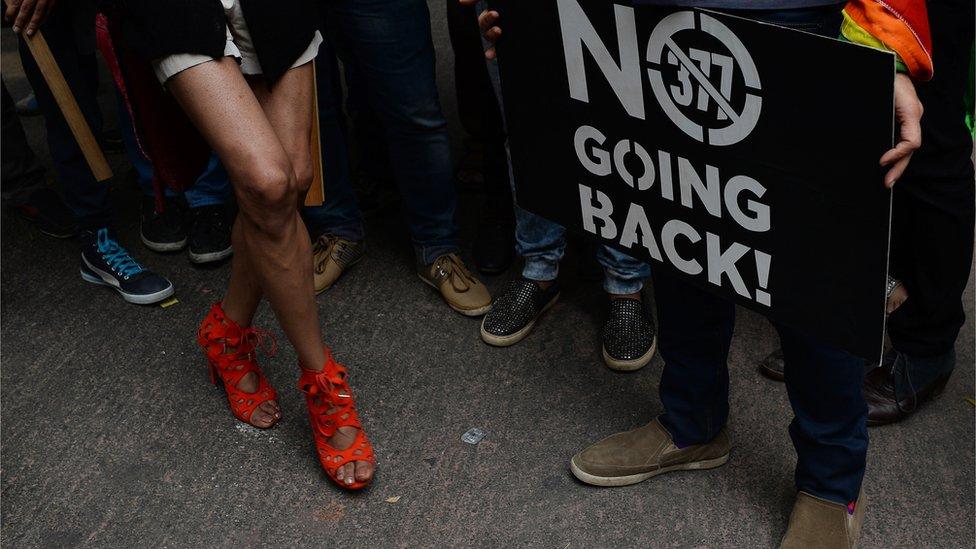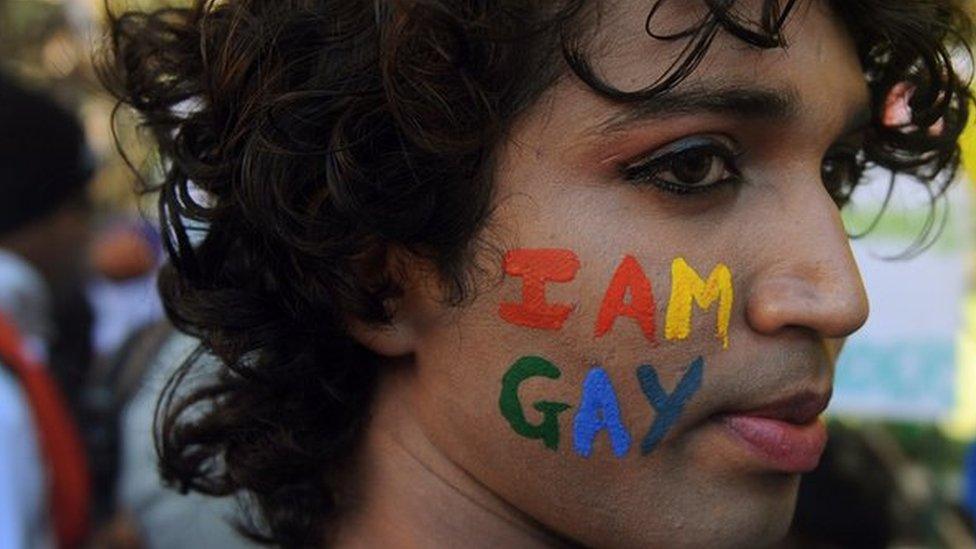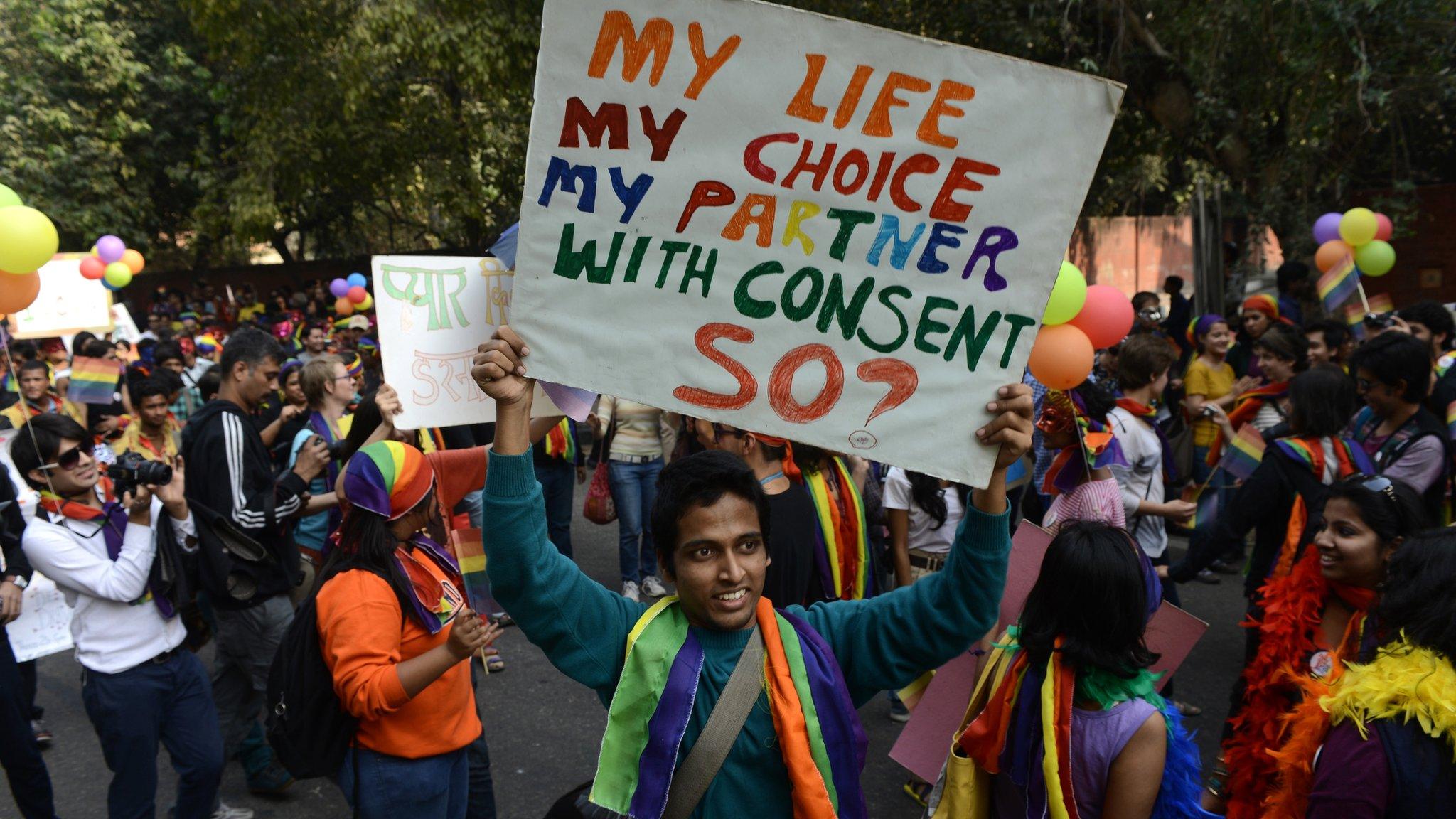India Supreme Court reopens case on decriminalising gay sex
- Published

There has been a vocal campaign to decriminalise homosexuality in India
India's Supreme Court has agreed to revisit a previous judgement that upheld a law criminalising gay sex.
Three senior judges said the 2013 ruling would be re-examined by a larger bench of judges, in a move that has been welcomed by activists.
The judges said that the issue was a "matter of constitutional importance".
According to Section 377 of the Indian Penal Code (IPC), a 155-year-old colonial-era law, a same-sex relationship is an "unnatural offence".
In deeply conservative India, homosexuality is a taboo and many people still regard same-sex relationships as illegitimate.
There has been a very vocal campaign to decriminalise homosexuality in India.
On Tuesday, the court heard a "curative petition" - meant to "cure" an earlier court order perceived as a "miscarriage of justice".
The court said the five-judge bench would be headed by the chief justice of India.
No date has been announced for the next hearing into the matter.
Members of the LGBT community, standing outside the court, broke into cheers and impromptu celebrations when the decision was announced, the BBC's Soutik Biswas said.
Activists say police and authorities often misuse the law to harass homosexuals. Under this law, a same-sex relationship is punishable by a 10-year jail term.
In its 2009 ruling, the Delhi High Court had described Section 377 as discriminatory and said gay sex between consenting adults should not be treated as a crime.
The ruling was widely and visibly welcomed by India's gay community, which said the judgement would help protect them from harassment and persecution.
However, several political, social and religious groups petitioned the Supreme Court to have the law reinstated, and in 2013 the top court upheld the law, saying it was up to parliament to legislate on Section 377.
However, an Indian MP's bid to introduce a private member's bill in the parliament to decriminalise gay sex failed.
Shashi Tharoor who also started a petition, external on Change.org over the issue, which has more than 40,000 signatories, said "it is time to bring the Indian Penal Code into the 21st Century".
- Published18 December 2015

- Published11 December 2013
